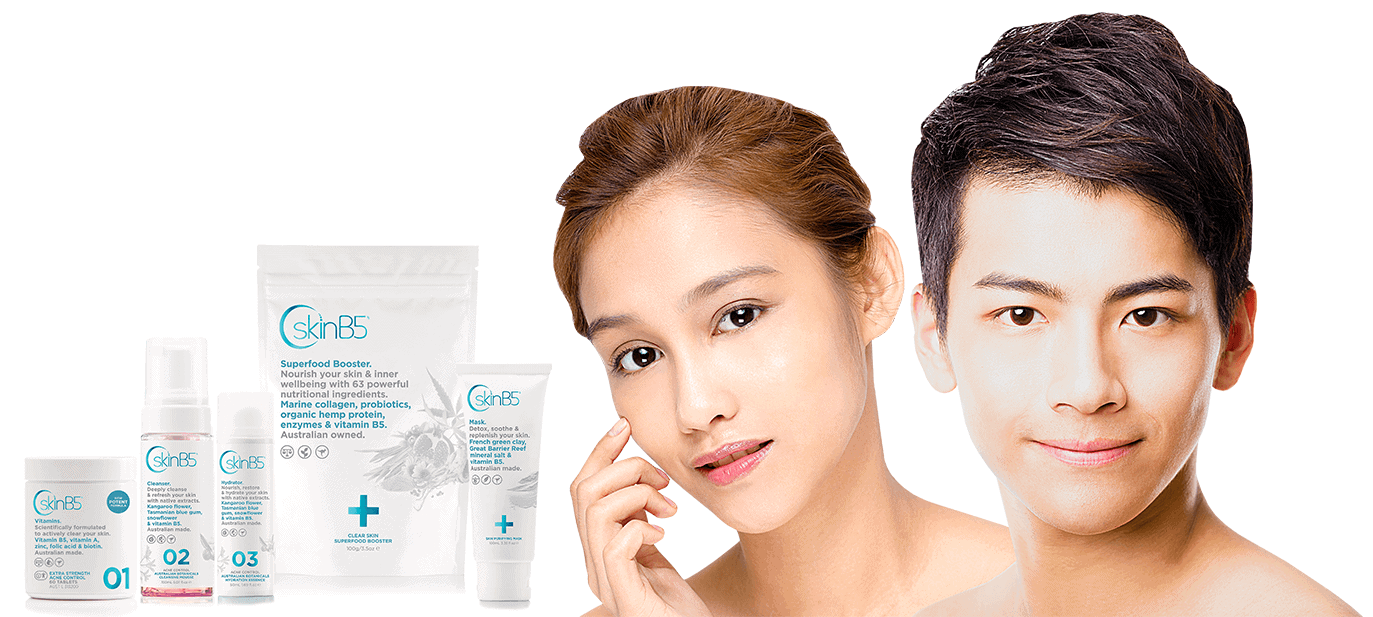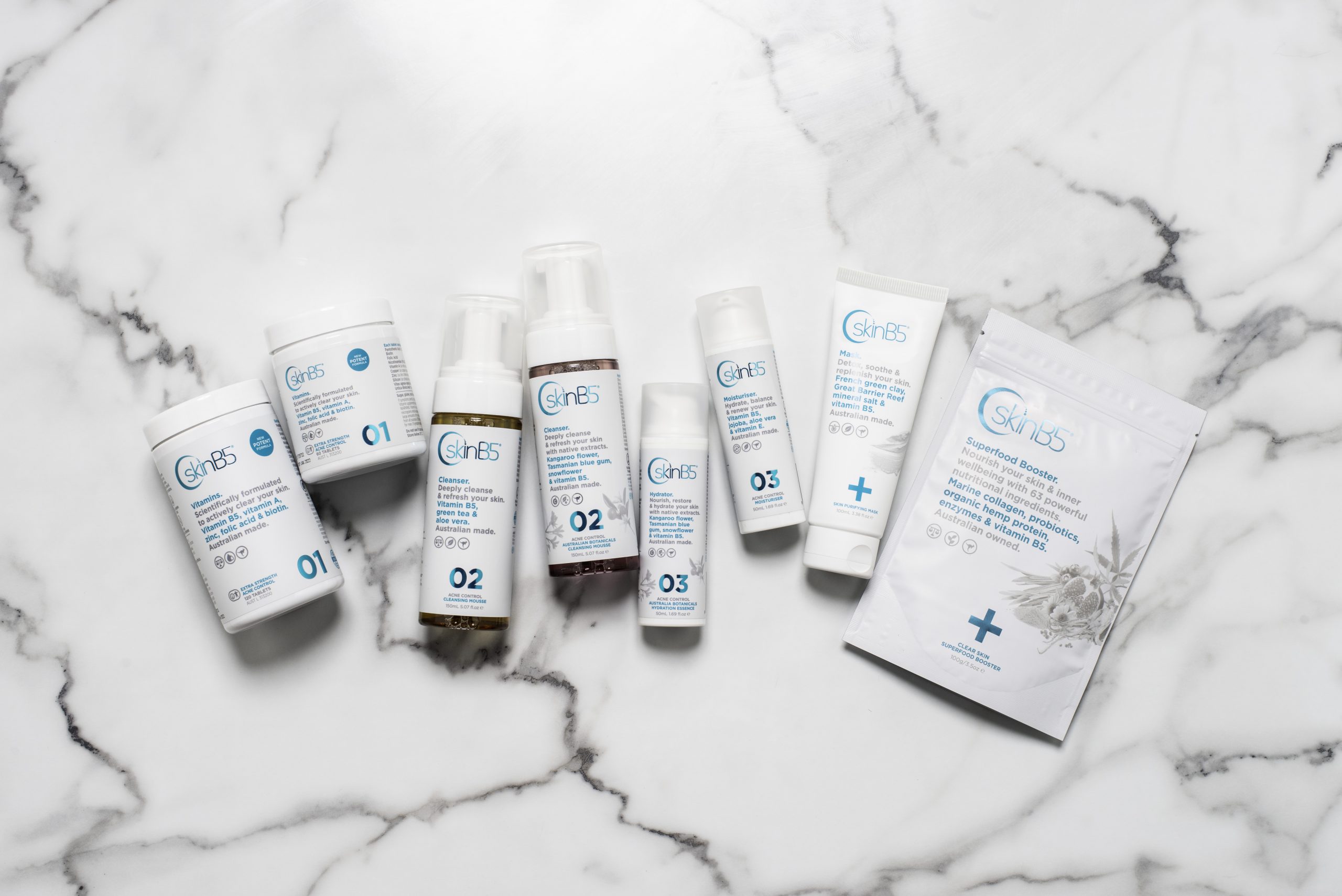Probiotics nor a handful of good ingredients alone will clear your skin. With the power of 63 nutritional ingredients, our premium quality Superfood Booster is the supplement with a difference that we know you’ve been looking for. Offering a clearer complexion naturally, our premium range of beneficial ingredients include:
Collagen, Australian organic hemp protein, spirulina, essential skin health nutrients, super antioxidants, probiotics, prebiotics, digestive enzymes and soothers,
Harmonising, cleansing & chi-promoting herbs, alkalising greens and those chosen for their anti-inflammatory and immunity building properties
A wave of designer probiotic pills and powders — stylishly packaged, with names like Glow and Inner Beauty — is based on the idea that perfect skin may be linked to your tummy.
Three years ago, Danielle Fleming, a real estate agent in Hoboken, N.J., started suffering persistent acne around her jawline. She had “ugly, weird pimples,” she said. After switching detergents, hair spray and anything else she could think of, she went to a dermatologist to ask about a prescription for Accutane or maybe a laser treatment. What she left with was a diet.
It took Ms. Fleming, 43, two years to adhere to the gut-changing diet suggested by Whitney Bowe, a dermatologist in New York. The diet, set forth in Dr. Bowe’s book, “The Beauty of Dirty Skin,” is essentially low-glycemic index foods along with bacteria-rich fermented ones. It is meant to alter the trillions-strong population of gastrointestinal microorganisms, quelling inflammation, including skin-related outbreaks.
But Ms. Fleming, a confessed sugar addict, was reluctant to give up her artificially sweetened yogurt and her bulk candy store habit, and she hoped that following bits of the diet inconsistently would be enough. Finally she gave in.
“I haven’t had a breakout since,” Ms. Fleming said. “And people ask me all the time what I’m doing to my skin.”
Fixing the gut microbiome has been linked to a wide range of health benefits (it may, according to some studies, help lower incidence of cancer, strokes and obesity), and much of skin care, the beauty category most affected by wellness trends, is now focused on the gut as the secret to complexion perfection.
So comes a wave of designer probiotic pills and powders — stylishly packaged, with names like Glow and Inner Beauty — that suggest they can do a lot of the heavy lifting of that gut fixing for you.
Consider: The Beauty Chef, an Australian company founded by a former beauty editor, offers seven probiotic-laced products that occasionally sell out on Net-a-Porter and Goop. Earlier this year, the makeup guru Bobbi Brown introduced no-water-needed lemon-flavored probiotic “pixie sticks” in her Evolution 18 wellness line.
Sonya Dakar, a facialist, sells a probiotic called simply Acidophilus Flora. Rose-Marie Swift, the makeup artist who is known for creating glowy skin on Kate Bosworth, Gisele Bündchen and Miranda Kerr, recently introduced probiotic supplements under her RMS beauty brand, inspired partly by her relative lack of success getting models to eat foods with live cultures.
“You’d get these beautiful models, and they’d have really bad skin,” said Ms. Swift, who, because of a long-ago illness, has been preaching probiotics and safer cosmetics for years before either was trendy. “I’d tell them to eat fermented foods, but nobody does.”
Net-a-Porter now offers 12 brands of ingestible probiotics for skin, up from one, and Newby Hands, the beauty director at the company, said via email that it’s one of its fastest growing categories, with double-digit growth each year.
“In London and Los Angeles we are seeing that some supplements are outselling serums and other formerly top-selling products,” Ms. Hands said.
So, Can I Just Swallow a Supplement?
Unfortunately, cleaning up your gut (and your skin) isn’t as simple as swallowing a probiotic. Not yet, anyway.
There are small studies associating certain strains of bacteria with acne reduction, skin hydration and elasticity. For example, one called Lactobacillus casei subsp. casei 327 (or L. K-1 for short) seems to improve the skin barrier and reduce flakiness, according to a 2017 Japanese study. Another strain, Lactobacillus rhamnosus SP1, has been linked to a reduction in adult acne, reported in a 2016 study.
So why can’t you simply swallow the strains in pill form and watch them automatically take effect?
First, it’s not even well established that a strong stomach, bacterially speaking, is the secret to clear skin. We don’t know precisely what the mechanistic connections are between the gut microbiome and the skin, said Justin Sonnenburg, an associate professor of microbiology and immunology at Stanford University School of Medicine, who studies gut microbiota.
It is certainly true that what happens in the gut isn’t confined to the gut, he said — that it’s part of the integrated system that is you. Your gastrointestinal micro-organisms affect metabolism, immune response, stress. Change something in the gut microbiome — diet is one of the most powerful levers for that — and the effects ripple outward, potentially to the skin.
But there aren’t any good studies that assess in a systematic, controlled way whether changing the gut microbiome influences skin health, Dr. Sonnenburg said. It’s a further leap to say you can take a probiotic that will have an impact on your gut microbial community in a way that then changes your skin health.
Dr. Yasmine Belkaid, the director of the National Institute of Allergy and Infectious Disease’s microbiome program, said that what these companies are doing is a logical next step — the gut microbiota is, after all, able to are doing is a logical next step — the gut microbiota is, after all, able to influence peripheral organs — but that “much more science” is needed to get there.
“Big promises have come too fast,” Dr. Belkaid said. “But in the next 10 to 15 years there could be some very impressive products on the market.”
And although the acne working group of the American Academy of Dermatology set forth diet guidelines for treatment for the first time ever in 2016, it stopped short of including probiotics, noting, “the existing evidence is not strong enough to support any recommendations.”
One problem with the current probiotics is that everyone’s gut microbiome is different. Add to that the variations in each person’s immune system and skin microbiome (the distinct community of critters that reside in the skin), and what it means is that whether a given probiotic will flourish — and then have an effect — is a bit of a lottery.
A small 2016 study published in the journal Cell Host & Microbe found that when a probiotic was administered orally, it persisted only in about a third of participants. (The study didn’t monitor health effects, only whether the bacteria took up residence.)
The Triumph of the Unsexy Diet
Even if science eventually finds a strong causal connection between the microbiome and glowing skin, probiotics aren’t likely to be a one-stop solution.
“Supplementation by itself isn’t going to be enough,” Dr. Bowe said. “If you just take a probiotic supplement, it’s going to pass through if it doesn’t have the right milieu to take hold and survive.” She recommends probiotics but only in conjunction with eating right.
Dr. Sonnenburg thinks it’s more likely that skin solutions will eventually go the precision health route. You’d be classified as one of, say, 12 types, with each type being given different probiotics, different dosages and different mixtures combined with a different diet to enforce a certain resident bacteria community composition.
“What I would probably bet on is that it would be a mixture of probiotic and diet, or even just diet alone, that will be a much more powerful lever for impacting skin,” he said. “But I’ve been wrong before.”
The best way so far to improve your skin from within seems to be the unsexy old one of lasting diet change, mostly of the sort already linked with other health benefits: whole foods, limited saturated fat, minimal refined sugar. And it is here that the current crop of probiotic supplements may be most effective, as a kind of gateway drug for diet overhaul.
“People tell me they start using my product and then they’re inspired to start to make diet changes because they feel an improvement in their health,” said Carla Oates, a.k.a., the Beauty Chef, whose company was inspired by her kitchen efforts to cure her allergies and then her daughter’s eczema.
Recently Ms. Oates wrote a cookbook to encourage gut “weeding and seeding and feeding,” something the lavishly photographed book, nominated for a James Beard Award, has likely done for her customer base. Sales of her products have doubled in each of the last three years, she said.
It’s a coconut-kefir-coated victory that has been a long time coming for Ms. Oates.
“My kids grew up on carob, and they love sauerkraut,” she said. “Their friends would come over and go, ‘Oh my gosh, that’s disgusting.’”







Leave A Comment